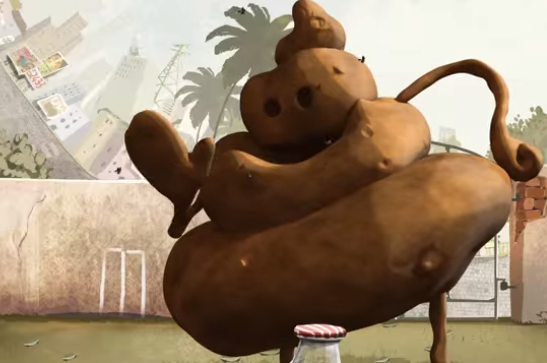World Toilet Day: 2.5 Billion People Are Forced To Poop In Public Every Day, And It’s Time We Start Talking About It

We need to have a serious conversation about poop. It’s estimated that 2.5 billion people lack access to proper sanitation, which means there’s a whole lot of poop on the streets, in people’s homes, even in the food and drinking water. This leads to illness, stunted growth, and unfortunately death. On Nov. 19, World Toilet Day, the United Nations hopes to raise awareness of this world health crisis — a move that will not only decrease the spread of disease but increase the dignity of the people.
Lack of proper toilets is believed to lead to around one billion people to practice open defection — that is, using the bathroom outside, often in the open with no privacy. This increases the spread of disease and has been directly linked to conditions such as cholera, typhoid, hepatitis, polio, diarrhea, and worm infestation. It’s also believed to cause long-term consequences such as reduced physical growth, impaired cognitive function, and extreme undernutrition. Vice News reported that open defecation leads to four billion cases of diarrhea and more than two million deaths each year, mostly among children. This is more death than AIDS and malaria combined.
While the problem is virtually unknown in 85 percent of the world, for the remaining 15 percent, it is the only option, according to information provided by the U.N. The problem is perhaps most widespread in India, where it's believed that around 550 million people practice open defection. The practice is also often found in sub-Saharan Africa, where the U.N. estimates that around 25 percent of the population uses the toilet in the open.
"When people don't use any form of toilet, they go into fields, roadside ditches, or along railroad tracks," Thorsten Kiefer, founder and CEO of Wash United, a German NGO that works to increase access to sanitation, told VICE News. "It means it's impossible to effectively separate human beings from their own sh**. People step in their own sh** and carry it in their house, flies land on their sh** — people end up eating and drinking each other's sh**."
In order to combat this public health risk, UNICEF introduced the Poo2Loo campaign. The campaign has proven successful, and in 2013, India’s Prime Minister Narendra Modi led the country with the motto “toilets before temples.”
Unfortunately, the problem is not as simple as a sheer lack of toilets. It’s reported that in countries such as India, it’s a general consensus that pooping in the open is the more natural and comfortable option.
“People often see defecating in the open as something that is more pleasant and more comfortable and enjoyable than using the confines of the small toilet," Kiefer said. "There's a whole culture around open defecation. There are age-old traditions that need to be opened up to get people to want to have a toilet and fundamentally change the norms in society."
Still, in this instance, breaking tradition may be more important than keeping it, since open defecation is linked to not only the spread of disease but also sexual violence toward women. It’s believed that of the 870 reported rape cases that took place in the Indian state of Bihar in 2012, the vast majority occurred when women went out openly to relieve themselves.
The Indian Prime Minister hopes to completely rid the country of open defecation by the year 2019. This goal may be reached with the help and support of the international community, but the first step is simply talking about it.
Published by Medicaldaily.com



























